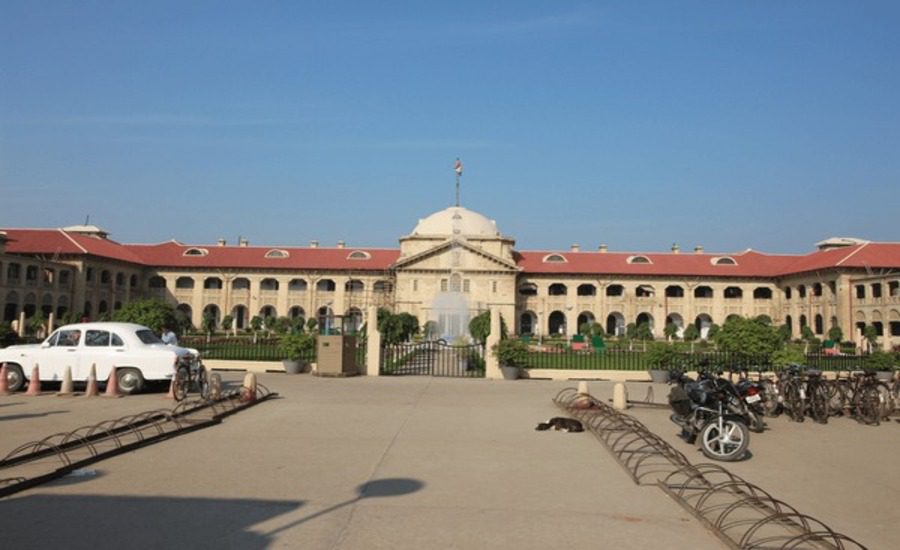The Allahabad Highcourt has delivered a scathing rebuke to the Uttar Pradesh government for displaying shocking “administrative insensitivity” toward a government employee caring for his son with mental disability. The landmark judgment highlights the gap between policy frameworks and ground-level implementation of disability rights.
Allahabad Highcourt Condemns Rejection of Compassionate Transfer Request
Justice Manish Mathur passed the order on September 12, 2025, in a case that has brought administrative callousness into sharp focus. The petitioner, Santosh Kumar Verma, a Senior Assistant in the Medical and Health Department, had been seeking transfer from Mainpuri to Ayodhya or nearby districts to care for his son.The son has been certified by the Government of India as suffering from mental retardation with 50% permanent disability. Despite documented medical evidence and compassionate grounds, the authorities rejected his request on purely administrative grounds.
13 Years of Service, Yet No Compassion
Verma had served in Ayodhya for 13 years before being transferred to Mainpuri in 2021. His son lives with his mother in Ayodhya, and Verma is the primary caregiver for the child with special needs.The Chief Medical Officer of Mainpuri certified that no Psychiatrist or Neurophysician is available in the district where Verma is currently posted. The CMO’s report also confirmed vacancies existed for Senior Assistants in Lucknow and Ambedkar Nagar.
Government’s Insensitive Response Draws Judicial Ire
The state authorities rejected the transfer request on June 17, 2025, citing administrative requirements and existing vacancies in Mainpuri. They argued that since Verma had already worked in Ayodhya for 13 years, he should continue in his current posting.The government counsel told the court that “transfer is an incidence of service” and choice posting cannot be provided to employees.
Allahabad Highcourt Highlights Legal Protections for Disability Caregivers
Justice Mathur found that authorities had acted with complete disregard for the disability certificate and the Rights of Persons with Disabilities Act, 2016. The court pointed out that officials were ignorant of paragraph 5(iv) of the Government order dated May 6, 2025, which specifically exempted persons with such disabilities from transfers.The judgment rejected the Joint Director’s argument that proximity to Agra’s mental hospital was sufficient for the child’s needs.
More Than Just Medical Facilities Required
The court emphasized a crucial aspect often overlooked by administrators: “It is not only medical facilities which are required but also an appropriate environment” for persons with disabilities. This observation aligns with the holistic approach mandated under the Rights of Persons with Disabilities Act, 2016.
Justice Mathur described it as a “sorry state of affairs” that the officer concerned couldn’t distinguish between the needs of a person with permanent mental disability and someone requiring treatment in a mental health institute.
Landmark Directions for Immediate Action
Finding the rejection order “clearly unsustainable,” Justice Mathur directed the Secretary, Medical Health and Family Welfare Department, Lucknow, to issue appropriate orders within two weeks for Verma’s posting in Ambedkar Nagar, where 12 vacancies were reported.
This swift timeline demonstrates the court’s recognition of the urgency in matters affecting disabled persons and their caregivers.
Significance for Government Employees and Disability Rights
This judgment sets an important precedent for government employees across India who are caring for family members with disabilities. It reaffirms that administrative convenience cannot override constitutional and statutory protections for persons with disabilities.
The case highlights several critical issues including administrative accountability, implementation of disability rights legislation, the need for sensitivity training for government officials, and recognition of caregivers’ rights in employment matters.
A Wake-Up Call for Administrative Machinery
The Allahabad High Court’s strong language against “administrative insensitivity” serves as a reminder to government departments nationwide. Officials must balance administrative requirements with compassionate consideration of genuine hardship cases, especially those protected under disability rights legislation.
As India strives toward inclusive governance, this judgment reinforces that every government order and policy must be implemented with humanity and understanding, not just bureaucratic rigidity.





























